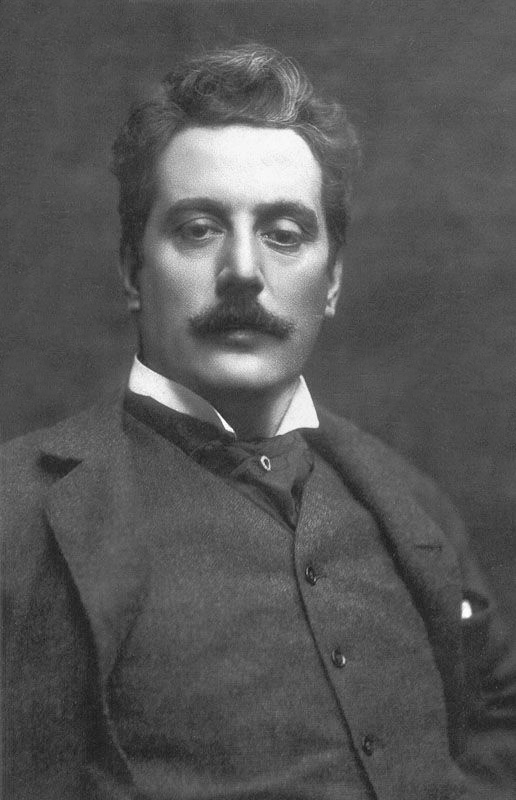ANNIVERSARY OF THE DEATH OF PUCCINI
It is today, but 94 years ago, that Puccini passed away in Brussels, leaving "Turandot," his ultimate work, unfinished.
Puccini is an enigma. Coming from a long line of church musicians, talented but seemingly without any apparent genius in his early dispositions, lazy (with regular complaints from his teachers), not very cultured, often lacking inspiration, he managed to create one of the most significant operatic works.
Of the twelve operas he composed, five or six are at the peak of the repertoire, with "La Bohème," "Tosca," "Madama Butterfly," and "Turandot" being, for some, the very pinnacle of this difficult art form.
Very sensitive to women, with a penchant for complicated stories (he seduced a married woman with two children, then the young sister of their maid, driving the latter to suicide), Puccini seems indifferent to the pace of history. Straddling the century, living through the most tumultuous periods of Italy, he took no sides, much like Prokofiev who compromised with the Soviet regime (his finest work is probably "Zdravitsa," a hymn to Stalin’s glory) to protect his work and his ability to create.
It is these tectonic movements that provide the fertile ground for opera, and a curious parallel arises between Germany and Italy, and between two generations of opera composers.
On one side, we have Wagner and Verdi, deeply driven by the political ideas of their time, positioning themselves as heralds of a people and voices of a civilization. On the other side, Strauss and Puccini, deeply rooted in their respective cultural identities, building from their predecessors but relatively impervious to the highly dramatic political events they lived through—everything that happens becomes fuel for their work, experienced through this lens and arranged to foster the emergence of their operas.
What is Puccini's greatness? If we stay within these two giant nations of opera and are not afraid of clichés, we might say, very broadly, that while the Germans are superior in the development of structure, with an unparalleled richness in harmonic language and the dazzling expanse of their orchestration skills, the Italians are incomparable in what makes opera essential for the layman—the voice, the singing, the melodic line.
(Mozart doesn’t enter into this debate, being a perfect Italo-German.)
Verdi also believed that pure instrumental music was distant from the Italian genius and foreign to its very spirit.
Puccini, however, is a descendant of Verdi, conscious of Wagner, and drawn to France (in his younger years in Milan, he was part of La Scapigliatura, which was akin to the Parisian Bohemian lifestyle, a wise and ancestral form of the chic but penniless hipster or German-Pratt hippie). While the countless collections "The Most Beautiful Arias of Opera" invariably contain a significant percentage of Puccini's work—it is the very exaltation of Italian bel canto—his light orchestration, full of subtle color nuances, is not without recalling the French ideal in this area. Moreover, the highly theatrical, worked-out dramatic structure, with the principle of the leitmotif very organically articulated and a highly varied harmonic vocabulary, marks the perfect integration of the Wagnerian contribution.
Thus, it is a miraculous balance of all the ingredients one would wish for in an opera, a balance never achieved elsewhere in quite this way.


